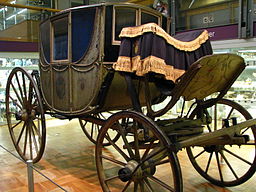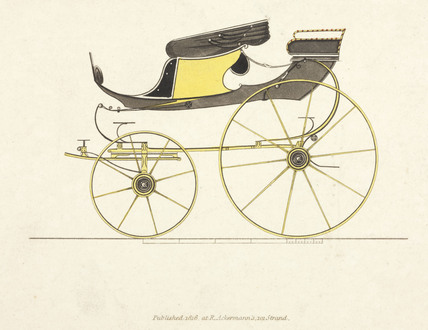 by Donna Hatch
by Donna Hatch
Throughout most of history, travelling, especially long distance, was a dangerous undertaking. Some of the many dangers a traveler in Regency England faced included highwaymen attacks, most of which only resulted in loss of valuables but often injury and death as well. To offset this risk, the wealthy generally had armed outriders who rode horseback in front and behind the carriage to guard and protect them but not everyone could afford that and sometimes highway men attacked in alarming numbers.
Travelers also faced broken down carriages which caused delays and inconveniences and injuries, especially if their coach traveled at high speeds at the time of the malfunction. In addition, weather accounted for difficulty and danger. There are accounts of passengers riding on the top of a mail coach arriving frozen to death. But by far the most dangerous part of travel came from carriage accidents.
Now, don't roll your eyes. I've heard readers complain that it's too easy to kill off a character by arranging a convenient carriage accident so that they have become cliché. However, as cliché as it may seem, carriage accidents were every bit as common as car accidents are today. And since I've been in seven car accidents, either as a passenger or as a driver, ranging from minor fender benders to car-totaling collisions, and several people I love have suffered life-threatening injuries as a result of car accidents, I'm painfully aware how frequently that happens.

Just as there are many reasons for car accidents today, carriage accidents could be caused by any number of difficulties. Traveling at high speeds increased the likelihood of a major wipe out. (No, that’s not a Regency term J High-perched carriages such as the High-flyer phaeton were top heavy and easily overturned, especially in the hands of an unskilled driver. But carriages in general were subject to all kinds of problems and breakdowns. Maintenance was up to the coachman, but if he wasn’t especially diligent, there were any number of parts to a carriage that could break and cause accidents.
Roads were another cause of difficulty. They were poorly maintained, often muddy, rutted, narrow and windy. They were also snowy or icy. Toll roads usually fared better, but not always. Also, the horses themselves could throw a shoe or stumble over a rut or uneven ground which posed a threat to the carriage.
Other drivers were some of the greatest perils on the roads. There were no speed limits, and no driver’s licenses, and driving while intoxicated wasn’t policed. Drunk drivers or young dare devils careening around bends caused an alarming number of accidents. And since there were no seat belts or crash safety engineering, passengers could be thrown around or crushed or ejected.
It paints a terrifying picture, doesn’t it? The next time you read a book where the heroine’s parents died in a carriage accident, remember that they were an alarmingly common and therefore very realistic form of premature death. Instead of rolling your eyes and uttering the dreaded C word, nod sagely and applaud the author’s realism.
I've actually been in a carriage accident. That's the thing with horses--if you work with them long enough, everything bad can go wrong.
ReplyDeleteI was out in a gig with what should have been a well-trained horse. He decided to spook and take off anyway, the bit in his mouth. He overturned the gig in a ploughed field--thankfully. It was soft, and after I watched him drag the gig around a bit, he wore out and I could catch him. He had to be unharnessed and walked back and then there was the fun of getting help to turn the gig upright again (all carriages are heavy). All in all a lively experience.
SARS-CoV-2 transmission is the modern day equivalent of the carriage accident. Spreading doesn't just happen. While some transmission events are ultimately unavoidable, most spread results from ignoring safety guidelines out of recklessness or selfishness.
ReplyDeleteThank you for the interesting article. I'm a fan of period fiction/film, but can't recall too many examples of the carriage accident being used as a plot device. Could you please list some examples in literature for me? Thank you!
ReplyDelete